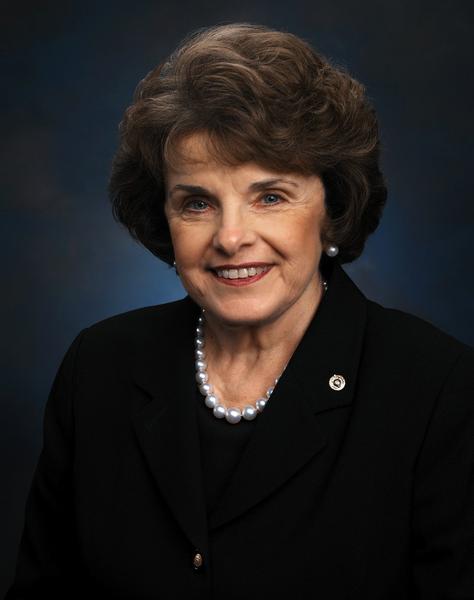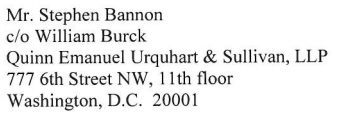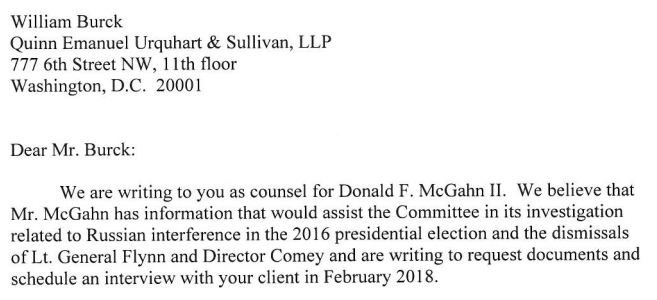Jared’s Clearance and the Foreign Policy Version of Conspiracy to Defraud America
I confess there is no multi-day Trump story I’ve looked forward to more than the problem with Jared Kushner’s clearance. And it is officially here. Last night, the NYT described how Jared is butting heads with John Kelly over whether he’ll lose clearance under Kelly’s post-Rob Porter mandate that people who can’t be cleared won’t be kept around anymore.
Kushner, frustrated about the security clearance issue and concerned that Mr. Kelly has targeted him personally with the directive, has told colleagues at the White House that he is reluctant to give up his high-level access, the officials said. In the talks, the officials say, Mr. Kushner has insisted that he maintain his current level of access, including the ability to review the daily intelligence briefing when he sees fit.
Today CNN and WaPo weigh in, with CNN nodding towards the conflict this will present Trump.
Though a source familiar with the situation said Kushner has not yet appealed to the President directly about his access to highly classified information, those close to Trump believe he would be inclined to grant his son-in-law access if asked. This source pointed to the fact that Kushner is part of the President’s family and has outlasted all of his rivals in Trump’s inner circle, including former chief of staff Reince Priebus, former chief strategist Steve Bannon, former campaign manager Corey Lewandowski and former deputy campaign manager David Bossie.
Trump, however, has given Kelly his full support in efforts to reform the White House’s system of security clearances, and has told his chief of staff that changes need to be made to bring the system into order, according to a person who has spoken to him about the matter. Kelly has interpreted that as a wide-ranging mandate that would include Kushner, a person familiar with the matter said. The person said Trump and Kelly would likely discuss the matter this week, if they haven’t already, before Kelly’s self-imposed Friday deadline.
WaPo brings the appropriate level of skepticism over whether Kushner can really do his Fake Peace Plan job without clearance.
It is not clear how Kushner could perform his job without a high-level security clearance.
He holds a broad range of responsibilities, from overseeing peace efforts in the Middle East to improving the efficiency of the federal government. And he is the administration’s interlocutor with key allies, including China and Saudi Arabia, where he has developed a personal relationship with the young crown prince, Mohammed bin Salman.
[snip]
And apart from staff on the National Security Council, he issues more requests for information to the intelligence community than any White House employee, according to a person with knowledge of the situation, who spoke on the condition of anonymity to describe private discussions.
More importantly, WaPo includes a series of false bravado quotes from Jared’s defense attorney, Abbe Lowell, who bizarrely offered up his judgement that Jared is speaking with foreign officials “properly.”
“My inquiries to those involved again have confirmed that there are a dozen or more people at Mr. Kushner’s level whose process is delayed, that it is not uncommon for this process to take this long in a new administration, that the current backlogs are being addressed, and no concerns were raised about Mr. Kushner’s application,” he said in a statement.
[snip]
Lowell said Kushner’s job is “to talk with foreign officials, which he has done and continues to do properly.”
I’ve come to think of Kushner’s clearance process in similar terms to the way I’ve thought of the bail process Mueller has used with Paul Manafort and Rick Gates: While Gates ultimately did make bail, Manafort is still (!) almost four months after his arrest, struggling to show enough liquidity free of taint from his money laundering to alter his release conditions. The process of making bail (and having to serially beg to attend his kids’ soccer events) seems to have been one of the factors that brought Gates to the point of flipping, but along the way, he probably gave Mueller’s team far more leverage in plea negotiations, because they know how little Gates actually has to pay a defense attorney to oversee the flip (indeed, that may lie behind the confusion over Gates’ current legal representation).
Kushner’s liquidity problems are literally an order of magnitude greater than these men. But unlike them, he made the idiotic decision to work in the White House, and thereby to undergo the scrutiny of sworn statements laying out all the financial vulnerabilities and foreign entanglements that might make him susceptible to blackmail.
Which brings me back to my description of how Mueller is leveraging “conspiracy to defraud the United States” (what I will henceforward refer to as ConFraudUS*) charges to prosecute political influence peddling for which our regulatory system has completely collapsed. With the Internet Research Agency indictment, Mueller charged ConFraudUS because the trolls bypassed a campaign finance system that no longer works. With Manafort and Gates, Mueller charged ConFraudUS because they bypassed Foreign Agents Registration Act requirements that have never been enforced.
In the old days, to pursue the kind of quid pro quo we see outlines of, in which Trump officials (from George Papadopoulos’ proposed business with Sergei Millian to the possibility Kushner might get bailed out by the Russian Direct Investment Fund, which is itself a cut-out for the sanctioned Vnesheconombank, whose head, Sergey Gorkov, Kushner met in December 2016), you’d pursue bribery. But post-Bob McDonnell, bribery is a far tougher charge to make stick, as Mueller prosecutor Andrew Goldstein, who worked on the Sheldon Silver prosecution team, knows well.
What if, however, you could charge people whose meetings seamlessly tie the foreign policy decisions of the United States with discussions of their own financial interests, with ConFraudUS? That might make it easier to charge someone whose foreign policy decisions don’t serve the US interest but might enrich them for the quid pro quo entailed.
Which is why I’m interested in the report that Mueller has shown increased interest (almost certainly tied to Steven Bannon’s public pronouncements that, “It goes through Deutsche Bank and all the Kushner shit”) in Jared’s foreign financial dealings, how he has mixed his business interests and US foreign policy.
One line of questioning from Mueller’s team involves discussions Kushner had with Chinese investors during the transition, according to the sources familiar with the inquiry.A week after Trump’s election, Kushner met with the chairman and other executives of Anbang Insurance, the Chinese conglomerate that also owns the Waldorf Astoria hotel in New York, according to The New York Times.At the time, Kushner and Anbang’s chairman, Wu Xiaohui, were close to finishing a deal for the Chinese insurer to invest in the flagship Kushner Companies property, 666 Fifth Avenue. Talks between the two companies collapsed in March, according to the Times.
Mueller’s team has also asked about Kushner’s dealings with a Qatari investor regarding the same property, according to one of the sources. Kushner and his company were negotiating for financing from a prominent Qatari investor, former prime minister Hamad bin Jassim Al Thani, according to The Intercept. But as with Anbang, these efforts stalled.
Lowell’s false bravado in this report is even more ridiculous than that in the clearance stories.
A representative for Kushner declined to comment prior to the publication of this story. After publication, Kushner attorney Abbe Lowell told CNN in a statement, “Another anonymous source with questionable motives now contradicts the facts — in all of Mr. Kushner’s extensive cooperation with all inquiries, there has not been a single question asked nor document sought on the 666 building or Kushner Co. deals. Nor would there be any reason to question these regular business transactions.”
Lowell may not have turned over any documents relating to 666 Fifth Avenue. But Deutsche Bank got subpoenas even before Bannon started running his mouth (albeit in a separate EDNY probe). Moreover, the key detail under my imagined ConFraudUS charge would be whether Kushner did things — like try to get Chinese investors visas — that didn’t serve or indeed violated the interests of the United States. Admittedly, the President gets largely unfettered control over the foreign policy of the United States (though Trump has defied Congress in areas where they do have some control). But to the extent Jared pursued his own business interests during the transition, he wouldn’t be able to claim to rely on presidential prerogative.
Which brings me back to Jared’s long struggle to get a security clearance.
Abbe Lowell may not have turned over the financial documents on 666 Fifth Avenue that would show how susceptible Jared’s debt woes make him to foreign influence. But he has serially provided that evidence in support of Jared’s almost certainly futile attempt to convince the FBI he should get a permanent TS/SCI security clearance.
I laid this out yesterday at the very end of my Democracy Now appearance:
I think—the reason why Kushner’s business deals are important, we’ve talked—and in the intro, this wasn’t the only example of—there’s the Don Jr. We’ve talked about how poorly Trump’s people have separated his business interests from the interests of the country. The same is even more true for Jared Kushner, whose family business is basically bankrupt. And over and over again, he’s been shown to be in negotiations with entities, including Russians, but also Chinese and Middle Eastern. So, you know, he’ll go in and say, “OK, we’ll talk about this grand peace plan,” which is not about peace at all, “but, oh, by the way, can you bail out our 666 Park Avenue building, which is badly underwater?” And I think Mueller could make the same argument he’s made with the IRA indictment and the Manafort indictment, and say that Jared Kushner is pretending to be serving America’s foreign policy interests, but in fact he is just doing his own bidding. He’s just trying to bail out his own company. So I wouldn’t be surprised if he’s moving towards a very similar indictment on conspiracy to defraud the United States, having to do with his conflicts of interest.
AMY GOODMAN: And, of course, interesting that Kushner also hasn’t managed to get top security clearance, when he’s a senior adviser to President Trump, as Porter didn’t because he beat his wives, etc. And then you’ve got Donald Jr. now in India promoting Trump businesses, as, of course, Donald Trump is the president of the United States. And he’s standing with the prime minister of India as he does this, promoting the Trump brand, Marcy.
MARCY WHEELER: Exactly. I mean, if Trump and his son and his son-in-law are pretending to be doing the business of the United States but are instead just trying to enrich themselves, again, I don’t think it’s a—you know, we’ve talked about the Emoluments Clause and how you go after the Trump campaign—the Trump officials for their egregious conflicts of interest. And, frankly, it extends into his Cabinet. But what Mueller seems to be doing, with some very good appellate lawyers, by the way, is to be laying out this framework that if you are pretending to be doing something in the interest of the United States but are actually doing something else, serving somebody else’s bidding, whether it’s Russia, pro-Russian Ukrainian political party, or whether it’s your own family business, then they’re going to go after you for a conspiracy charge. And I wouldn’t be surprised if these conspiracy charges all kind of link up at the end, in this kind of grand moment of—I think that’s where he’s headed.
Remember, Trump and his spawn never really thought they’d win the election. Instead, they seemed interested in, among other things, a Trump Tower in Moscow and refinancing 666 Fifth Avenue. But if they made deals with Russians in hopes such personal financial benefits would result, a ConFraudUS charge might be a way to prosecute them for it.
*I originally shortened this “CTDTUS,” but following Peter Crowley’s suggestion, I’m instead using “ConFraudUS.”
[Note: At the top of this post there is an embedded video of Marcy’s interview with Democracy Now. It isn’t rendering properly on all browsers and operating systems and may appear as a blank space. You can watch the video or listen to audio at this link. /~R]





